Synthesis School Review: Elon Musk’s Playbook for Teaching Our Children A Better Way to Learn
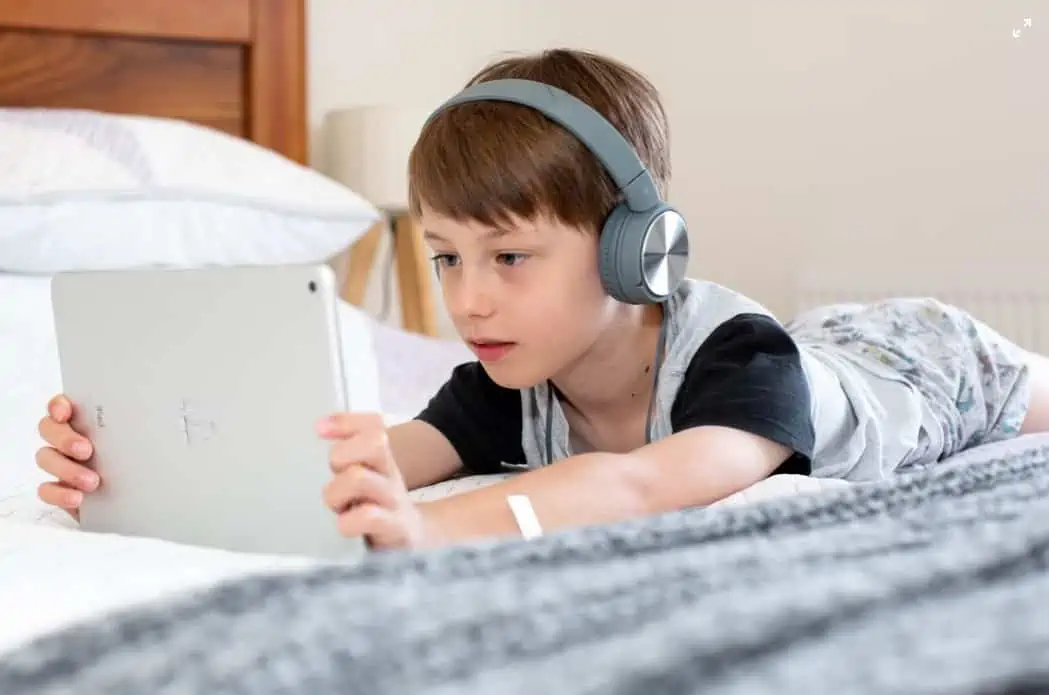
An honest Synthesis School Review from parents and their ten-year-old.
If Tesla is to cars as SpaceX is to space travel, is the Ad Astra & Synthesis School the future of education?
Educating our children in the digital age presents a sea of opportunities and ongoing enrichment programs.
It is also an experience still grounded in the traditional classroom and tethered by tax-dollar constraints.
We wanted to share our story in the event it could help curious parents evaluate if their child’s learning experiences and education systems are truly teaching relevant skills.
A Good Problem to Have
We’ve been fortunate to have kids who thrive in the traditional system. Blessed, in fact.
But will the conventional system prepare them for the world that awaits them ten years from now?
My guess is no.
And I can tell you the exact moment it became clear:
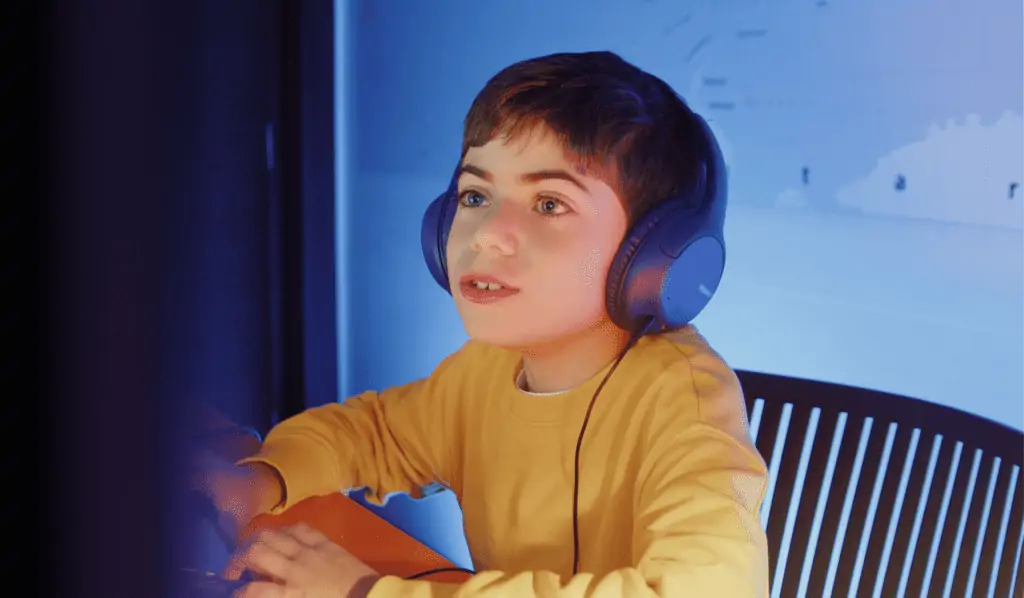
The parent-teacher conference.
Driving there, we were curious about the deep insights we will hear about our child’s specific behaviors, interests, strengths, and weaknesses. We couldn’t wait.
Driving home, we felt the feedback we received could have been copied and pasted for 80% of the kids in the class.
Beyond that, we couldn’t shake the nagging sense the subjects felt like an outdated checklist of nice-to-haves.
Could memorizing state capitals be more important than learning to code?
Our thesis: With Siri a whisper away and supercomputers in our pockets, memorizing facts should take an immediate backseat to developing fundamental problem-solving skills.
Follow Every Direction
But how could they learn to solve real problems when always given both direction and rules?
Flashback to my niece’s first day of soccer. Shin guards on, a little nervous to try something new, and a last-minute pep talk from the car reminded her, “be certain you follow every direction from your coach.”
The coach asked the young group to run down the line and back to warm-up. Unsurprisingly, she was last to finish as she tried to run literally “down the line” like a balance beam.
She was doing exactly what she had been told: follow every direction.
I was beginning to feel like school days encouraged a lot of carefully following one another to tiptoe down the line.
But She’s Doing Great In School
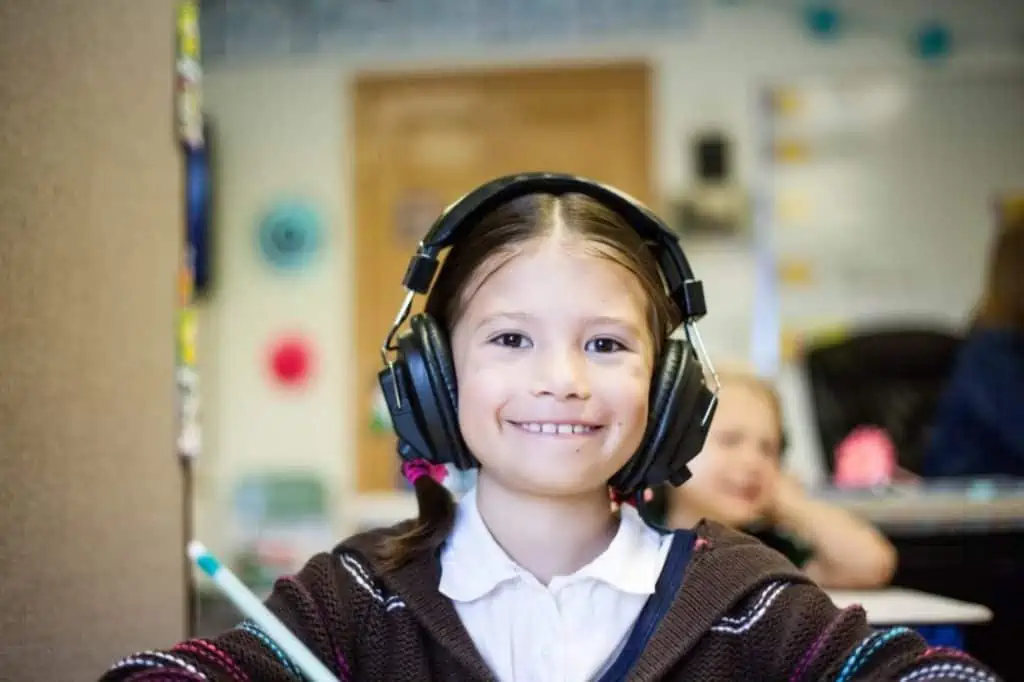
My daughter might receive high praise for listening well to others, being organized, and owning the completion of her tasks.
And while she is very self-sufficient when it comes to her homework, one night Math triggered tears. She was distraught and declared there was no way a specific problem was fair as her teacher would never assign something that hadn’t yet been taught.
Upon reading the problem and others she had completed, you could recognize that the theme was similar, just flipped on its side. She had no interest in trying to problem solve, she was simply hurt to be asked to do something she didn’t understand.
This was a flag for us.
She had been hailed as an “excellent mathematician” the week before. This experience highlighted that she was excellent at coloring in the lines but inexperienced in flexing the necessary muscles to solve a new problem without a handbook patiently.
What school would we design?
You might not be surprised to learn this, but we’re both engineers.
When faced with a problem, our instinct if take it apart and design something better.
So we turned over our daughter’s report cards and began with a fresh sheet of paper.
What are the essential capabilities for her to develop? And how would she practice those skills?
- Get comfortable being uncomfortable / embrace the chaos
- Have the curiosity to look at complex problems and define your own speed limit
- Practice and refine collaborative problem-solving skills
- Ask questions and listen for thoughtful answers
- Build relationships with those who can help
And if we’re being honest, we’re not contrarian enough to homeschool our kids to make this a reality. Instead, we looked for ways to supplement.
Enter: Synthesis School
This quick video from a parent certainly piqued our interest:
What is the Synthesis School
Synthesis School (you’ll find them at synthesis.com) is an online school that started as a full-time program for the children of parents who worked at SpaceX. It was born of – surprise, surprise – a disappointing parent-teacher conference for Elon Musk.
When Elon left a meeting with his child’s teacher, he was inspired to re-think the concept of a school from first principles. Why did we continue to teach kids the same as we did 100 years ago? Especially given success in the world looks much different today?
He asked Josh Dahn to create that school with two principles in mind:
- Cohort children based on their ability, not their age.
- Don’t teach the tool. Teach the problem.
He rationed that learning how to use tools for the sake of learning them can be boring until you see how tools can help to solve problems. He felt that the current grade-level model was not the right fit and that students have different skills and interests that vary over time.
He noticed that his children didn’t need any nudging to play video games, so why not gamify education?
With these guiding principles, Josh Dahn went on to create Elon Musk’s Ad Astra school (in Latin, “to the stars”) a lab school for Musk’s children and SpaceX employees.
In Dahn’s own words, “The goal was to develop students who are enthralled by complexity and solving for the unknown. Synthesis is the most innovative learning experience from that school. It is designed to cultivate student voice, strategic thinking, and collaborative problem-solving.”
Enter Chrisman Frank, engineer #1 at ClassDojo, a K-12 network that reaches ~30 million teachers and students. He visited Ad Astra for the day and was astonished by the energy and excitement flowing from the classroom during the “Synthesis” course. Instead of lectures, students were whole-heartedly engaged in Astra Nova game simulations.
Frank felt compelled to bring this opportunity to students around the world and is now the co-founder and CEO of the edtech startup Synthesis School.
How does it work?
Sometimes it’s easier to show than tell.
There are another half dozen games and simulations that kids play weekly with a consistent group of peers. They can also opt into an increasingly diverse set of programs with other kids worldwide.
For our family, the weekly consistency combined with opt-in flexibility works for our 10-year-old.
You can always learn more about their approach on their website too. It’s worth checking since the offering is rapidly changing as they learn more about what works.
Bracing Yourself to Embrace the Chaos
I know we struggled with this.
As parents, we can’t aspire for our kids to get comfortable with failing and constantly prevent mistakes. We can’t ask them to make sense of ambiguity and then ask for every detail to be settled in advance.
So like us, you’ll probably have questions like:
Who are the Teachers?
Synthesis School is quick to point out a razor-sharp focus on their teachers. Only 4-6% of those who apply to teach are accepted.
Our daughter would be quick to point out that she thinks of the “teacher” as more of a facilitator for her cohort. More questions than instructions.
What’s Application Process?
We had first heard about Synthesis on Pomp’s podcast.
Intrigued, we began to dig a little more and actively followed the school’s chief learning evangelist, ana Lorena Fabrega (aka Ms. Fab):
We mentioned the idea to both daughters and shared the video of students playing the Constellations. Their reaction was one of slight intrigue, but it sounded like “more school.”
As parents, we were intrigued.
“Apply to Synthesis” remained on the whiteboard for several weeks.
As we were making dinner, we put on the office hours webinar. Our youngest was in the kitchen with us, and after listening for a bit, she raised her hand and hopped off her seat at dinner to complete her application.
In the spirit of student-led learning, we didn’t peer over her shoulder or suggest re-recording her interview. It was one honest, enthusiastic take.
And I wish we had recorded her reaction when we told her she was admitted the following day. It was an authentic “I made it!”
We’ve heard from a few friends that there is a waitlist now, so might be worth getting your name in sooner than later.
What if my kid hates it?
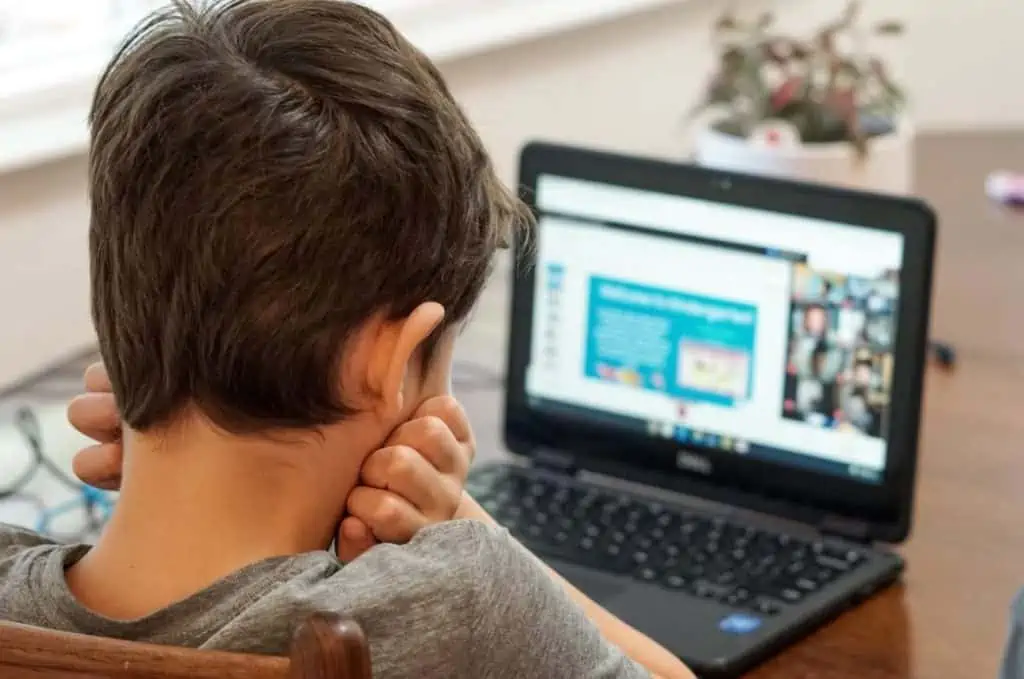
First, I’ll admit things started a bit slowly for our daughter. The game was new. The people were unknown. The rules weren’t unclear; they didn’t exist.
So if we asked her how she liked it, it was closer to a “meh” than a “hell yeah.”
But we were determined to see if she could get more comfortable with all that newness. After all, wasn’t that the point.
Ultimately she did. And especially for a couple of other games, she “holy moly loved it.”
But Synthesis School also makes it easy on us. If we wanted to bow out after a month because it wasn’t what we expected, their refund policy is to simply ask. That’s it.
Our Daughter’s Experience 3 Months In
To set expectations, we didn’t expect raving reviews every session. Our expectation, knowing our daughter, is that she’d straddle curiosity and discomfort.
But that she’d want to show up and actively participate week in and week out. And hopefully, build into some optional sessions.
We also tried to set her up for success: we have good internet speed (some kids don’t and it’s frustrating for everyone), a good laptop, and a quiet place to play. And we give her a gentle reminder to expect the tsunami of chaos and “ride the wave”.
Thus far, I’d say we’re meeting that expectation. She loved the introduction of the Constellation 3D game.
In fact, here’s her take:
What’s the best part of Synthesis School?
The best part is the challenges.
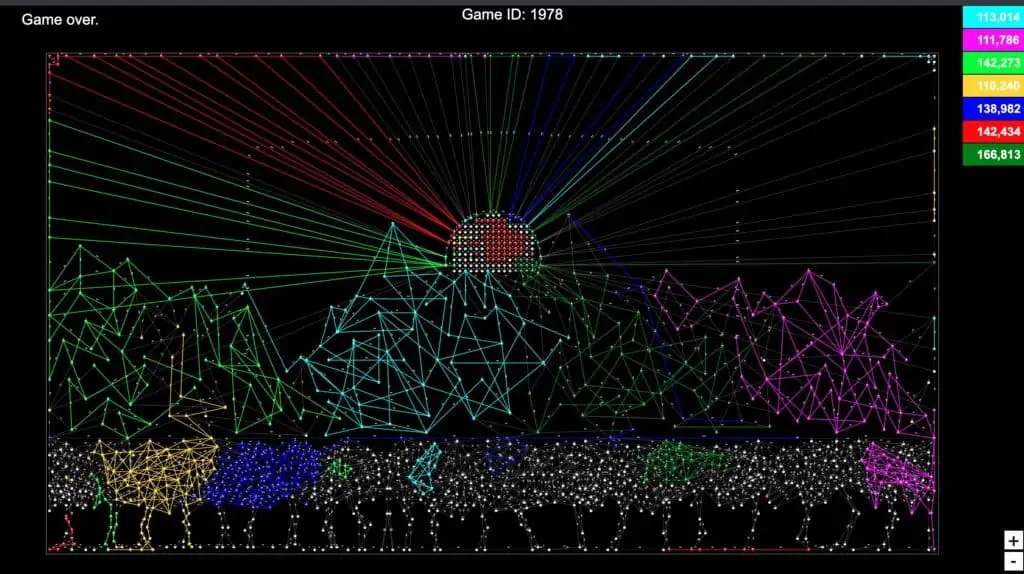
A challenge can be to reach a certain number of points or to reach a certain area of a map. You get to do challenges with your cohort, and there’s one for each game.
Everyone has so much fun with the challenges, and it brings us closer together as a team.
What’s one thing you’d change?
I would add cohort vs cohort challenges. If we could meet at a random time during the week to do games or a challenge with other cohorts, that would make it awesome!
What are the kids in your cohort like?
The kids in my cohort are very nice, they are very focused, and they are competitive. The kids from my cohort are not just from the U.S, they are from all over the globe!
It’s fun to be with my cohort during the week because you get used to them over the weeks.
My only problem is the fact that I am one of the oldest in my cohort. I am with all the younger kids.
What’s one piece of advice you’d give new students?
I would say just try your best. Even if you are not very good at a game yet, or you are confused about how the game works, give it some practice, and you will get better!
Are you Ready to Try Synthesis School?
By sharing our experience, we hope that you can decide if introducing a little chaos is just what your little learner needs. And if it’s not gamified online problem solving, perhaps you prefer to supplement with advanced math?
We’ll circle back and provide updates periodically as our daughter grows and Synthesis School evolves with her.
If you have any feedback, let us know in the comments. And if you decide to make the leap, we’d love to hear about your experience.
